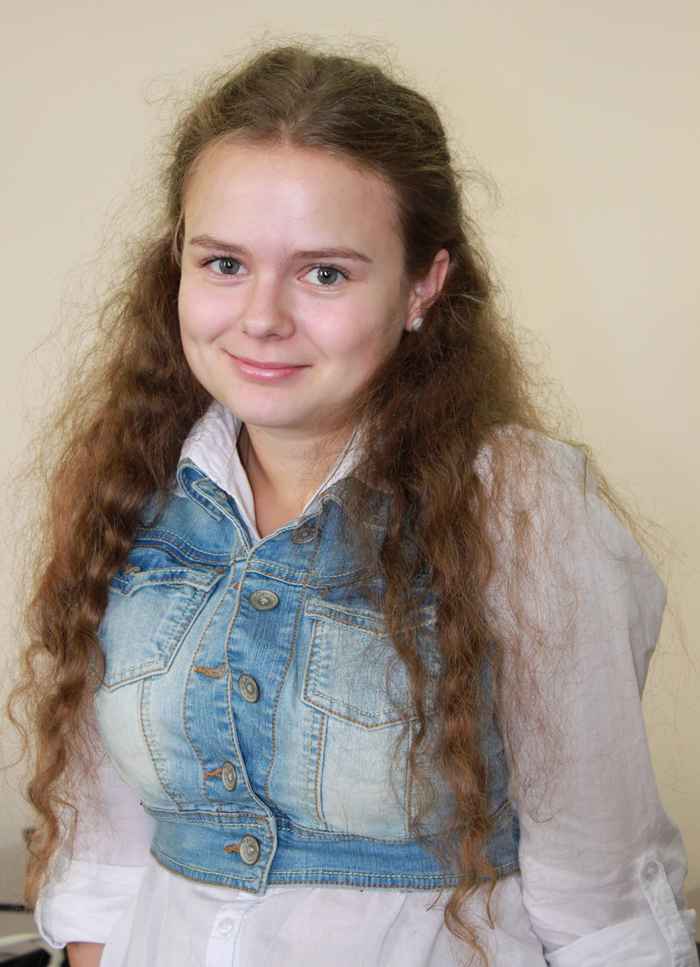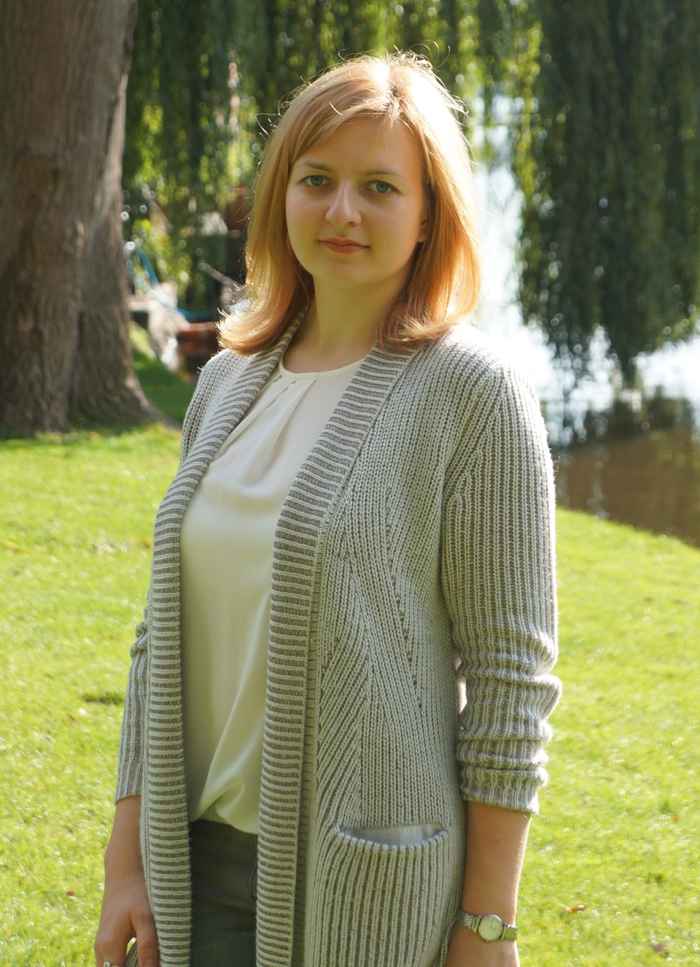Meet the students
Interview with Elena Mironova
Master’s in Actuarial Science and Mathematical Finance

Why did you want to study abroad?
It is a great opportunity to get out of your usual environment, to change your life significantly, to learn a lot and to meet a lot of people from all over the world.
What is the main reason that you chose the UvA over other universities for your studies?
I received a scholarship for the UvA. In fact, without the scholarship I would not have been able to come. Moreover, not that many universities have actuarial science in their programme list, so the choice was quite limited. But also living in the Netherlands, in Amsterdam, matters a lot - it is a wonderful place
What was most surprising to you about student life at the UvA when you came here?
The attitude towards students. It seems like everything is here for us. Want to study hard? Here you go, a couple of assignments and a big comfortable study centre to finish them on time. Want to be active and social? Here you go, all sorts of events from career days to study trips and excursions with the International Student Network. Need some help? Whatever question or problem you are facing, there is always someone at the UvA to help you.
Is student life and education at the UvA different from in Russia?
The pace here is much faster: 2 courses for 6 weeks, a study week, exams, and then it repeats throughout the year. Back home we had over 10 courses at the same time and an exam session twice a year. Such a fast pace of studying always keeps you alert and prepared, you need to start working hard from the very first class in order to make it all in the end.
If you could give some advice to a student coming to study in the Netherlands, what would it be?
Do not be afraid and do not hesitate to ask questions! The staff of the university is very helpful, they will always check whether your documents were received, they will always answer the question or refer to someone who knows the answer, they are always there for you.
Do you think there are benefits to studying at the UvA that you would not have in Russia?
An important benefit is an internationally recognisable degree. It is an amazing start for an international career in any field. Moreover, we do not have as many international students studying in Russian universities. I think this is one of the greatest benefits here: you have a chance to meet people from different countries, to get to know about their cultures at first hand.
What do you think you will remember the most about your time at the UvA?
So far it is the amount of hours I spend at home studying…But seriously, I will remember one professor's excitement when he was telling us about the most recent developments in his field, I will remember the introduction days when the impressions are new and fresh, I will also remember events of the Excellence track organised by the most committed coordinators: they brought together a team of very interesting people.
Interview with Anastasia Gavrilova
MSc in Business Studies (now called ‘Business Administration’), Specialisation: Strategy

Why did you want to study abroad?
I have always wanted to get international experience, live abroad, and get first-hand experience of other cultures and ways of working. I think these things are crucial if you study business and wish to become an effective manager.
Why did you choose the UvA? Did you have other options?
I chose the UvA because I liked the flexibility of the programme in terms of content and the wide choice of courses. Having worked for a year after my Bachelor’s, I knew exactly which subjects I would like to focus on. Furthermore, the UvA is a high-ranked university worldwide. Lastly, financial factors were of importance for me too and the UvA is definitely great value for money.
How was the application procedure? Any tips for that?
I would recommend reading more about the Dutch educational system and finding out about its peculiarities. For instance, I found out that extra-curricular activities are very important here and I tried to elaborate more on those in my resume and motivation letter.
Is the education system in the Netherlands different from in Russia?
Dutch universities offer far fewer classes than Russian ones do, so the focus here is mostly on self-study. Also, the study programme is usually divided into 6 blocks with exams at the end of each block and this does not let students relax much, even if the work load within each bock might not seem very high. And finally, the grading scale is completely different. In a Dutch university, getting a minimum “pass” grade of 5.5 out of 10 requires only basic knowledge of the subject, but in order to receive a higher grade you have to demonstrate exceptional knowledge. Grades of 9 and 10 are almost non-existent.
Was it easy to get in contact with the teachers/professors?
Yes, all the staff is very approachable and willing to help.
What was something that you had to get used to in this new city?
All the shops close at 6 pm and are often closed on Sundays: plan your time well! This is a huge difference from the ‘Moscow never sleeps’ atmosphere I was used to. Overall, Amsterdam and other Dutch cities are amazing: beautiful, entertaining and 100% bicycle-friendly.
What are you doing at the moment?
I work at Shell in the Hague as a Finance Improvement Analyst.
What would be your #1 tip for prospective students?
Before choosing a particular study programme, you need to have a clear understanding what it is about and how it matches your desired career path. Of course you do not have to have all your future planned, but when it comes to a Master’s, you should have already set a direction for yourself to follow. Read the content of the courses and decide which ones you would like to take in advance. Maybe it makes sense to work for a year or two between Bachelor's and Master's to understand what kind of career and, hence, education would be the best for you.